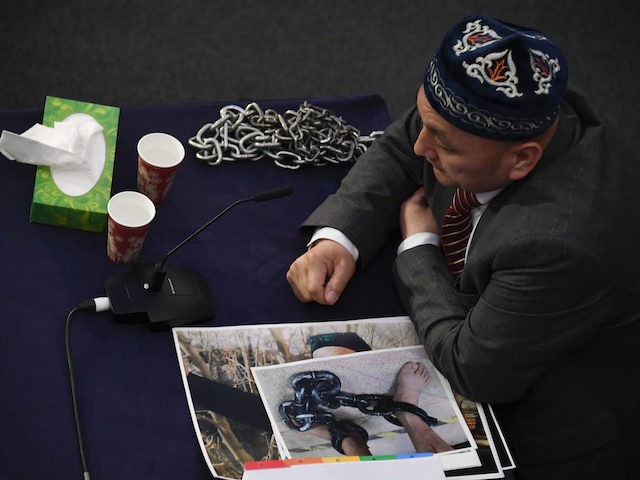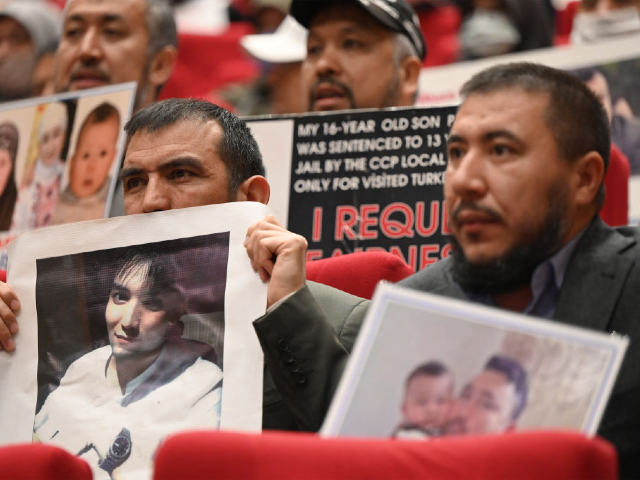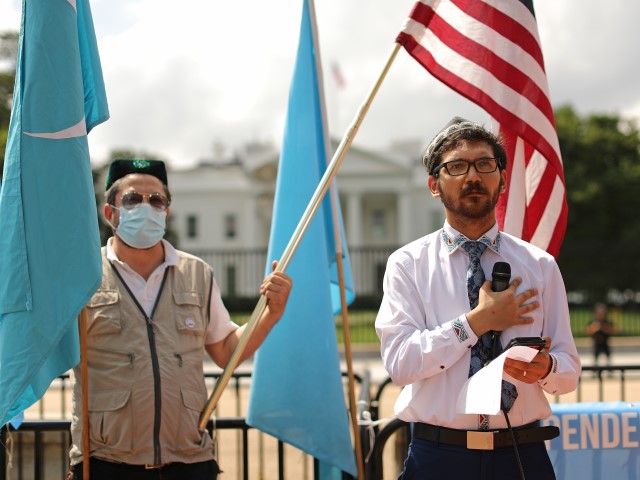American Corporate Community and its major players — BlackRock, Goldman Sachs, Bridgewater, Google, Microsoft, Intel, Twitter, and Musk — and, of course, Gates — that draws them to a plutocracy that would never hesitate to betray America for a financial advantage or an opportunity to be a part of a global powerhouse oligarchy complicit with and colluding with malefactor government tyrannies. (avarice, cupidity, and rapaciousness) JOHN DALE DUNN John Dale Dunn
BANKSTER BLACKROCK IS JOE BIDEN'S BIGGEST PAYMASTER AND OPERATES ITS INTERESTS OUT OF THE BIDEN WHITE HOUSE UNDER GAMER LAWYER BRIAN DEESE, A FORMER BLACKROCK EMPLOYEE.
World’s largest asset management firm was “front and center” of Fed’s Wall Street bailout
The close collaboration between the US Treasury, the Federal Reserve and the multi-billion dollar asset management firm Blackrock in devising the March 2020 rescue operation for Wall Street has been revealed in an article published in the New York Times yesterday.
According to the article, Larry Fink, the CEO of Blackrock, the world’s biggest asset management firm, was “in frequent touch” with US Treasury Secretary Steven Mnuchin and Fed chair Jerome Powell “in the days before and after many of the Fed’s emergency programs were announced in late March.”
Report: Blackrock, State Retirement Funds Invested in Chinese Firms Tied to Uyghur Genocide

A report published by Hong Kong Watch and Professor Laura T. Murphy of the University of Sheffield Hallam on Monday found that dozens of American, British, and Canadian state pension funds are passively invested in Chinese companies that face credible accusations of enslaving Uyghur Muslims.
The report, entitled Passively Funding Crimes Against Humanity: How Your Savings May Be Financing Internment Camps and Forced Labor in China, identified 13 Chinese companies listed on three vital Morgan Stanley Capital International (MSCI) indexes that use forced Uyghur labor provided by Chinese state-sponsored programs, or have been involved in the construction of concentration camps for the Uyghurs.
China is currently engaging in genocide against the Uyghur people and other non-Han communities in East Turkistan, a western region under Chinese communist occupation the regime refers to as Xinjiang.
One of the companies spotlighted by the report is Foxconn Technology, the Taiwan-based company whose enormous plant in Zhengzhou, China, is the world’s largest facility for assembling Apple iPhones. The authors cited documentation that shows “hundreds of Uyghur workers have been transferred to Foxconn factories,” including the one in Zhengzhou, where they have “reportedly been required to work at least 100 hours of overtime every month.”
“Foxconn participates in the ‘Xinjiang Aid’ scheme, and Uyghur workers are under constant surveillance, subject to patriotic re-education, and expected to express gratitude to the Communist Party,” the authors noted.

File/Members of Muslim Uyghur minority present pictures of their relatives detained in China during a press conference in Istanbul, on May 10, 2022. Turkey’s Uyghur community urged the U.N. to probe so-called “re-education camps” during a long-delayed visit to China this month including to Xingjiang, where Western lawmakers have accused Beijing of genocide. (OZAN KOSE/AFP via Getty)
The Foxconn plant in Zhengzhou is currently in the headlines because many of its workers fled a brutal coronavirus lockdown, and those who remain are rioting against poor living conditions and abusive labor practices. Apple is warning customers worldwide that iPhone supplies could be significantly delayed due to the unrest at the Zhengzhou plant.
“Xinjiang Aid” is the Chinese Communist Party’s official euphemism for its abusive Uyghur policies. China claims the massive concentration camps dotting Xinjiang province are merely “vocational training schools” that just happen to be surrounded by barbed-wire fences for no particular reason. The concentration camps hosted as many as 3 million people at their peak, but have since shipped thousands out to work in factories across the country as slaves. The Communist Party openly sells Uyghur slaves to companies online.
Xinjiang Aid presents China’s slavery programs as the benevolent Communist state offering free transportation to exciting job opportunities in other provinces for the graduates of these grim “vocational schools,” where they work for minimal-to-no pay and have no control over the terms of their employment.
The report lists investment funds that hold equities in the offending Chinese companies, a list that unfortunately includes “some of the largest private pension fund managers and important local public pension funds in the U.K., Canada, and USA.”
“Given MSCI’s popularity as a global benchmark for emerging markets, this list does not include all funds that are invested in these indexes; other funds may be equally exposed,” the authors noted.
Topping the list were funds managed by BlackRock, HSBC, UBS, Invesco, and Deutsche Bank, all of which were invested in six Chinese companies documented to employ forced labor, plus six companies involved in the “construction of repressive infrastructure” in the Chinese province of Xinjiang where the Uyghurs live.
The full list included 18 major international asset managers, 11 U.S. state pension funds, 4 Canadian pension funds, and 8 U.K. pension funds, plus two pension funds in New Zealand and Japan.
The U.S. pension funds included the immense California Public Employees’ Retirement System (CalPERS), the New York State Teachers fund, and investment or retirement funds in Florida, Minnesota, Nevada, New Jersey, Oklahoma, and Pennsylvania.

File/Salih Hudayar (R), founder of the East Turkistan National Awakening Movement, leads a rally outside the White House to urge the United States to end trade deals with China and take action to stop the oppression of the Uyghur and other Turkic peoples August 14, 2020 in Washington, DC. (Chip Somodevilla/Getty Images)
The report noted that only three of the Chinese companies it highlighted for abuses are currently covered by the Uyghur Forced Labor Prevention Act (UFLPA), a U.S. law that took effect in June. The UFLPA requires importers to prove that products harvested or manufactured in Xinjiang are not tainted with forced labor, a much higher standard than previous import controls.
“This is a noticeable blind spot, given the publicly available data that can be accessed about every firm listed. The U.S. government should expand the lists to ensure that companies known to be complicit in forced labor are excluded from importing goods under the UFLPA,” the report advised.
The authors also advised the U.S. government to “harmonize” the UFLPA with the list of entities covered by Executive Order 14032, a June 2021 order that banned investment in Chinese entities associated with human rights abuses and the rising security threat of the “military-industrial complex of the People’s Republic of China.”
The authors noted that UFLPA does not ban investments, so until it is harmonized with Executive Order 14032, it is possible for Americans to invest in firms whose imports are banned because they engage in slavery.
The report made similar recommendations to the European Union and Canada, advising the creation of carefully vetted “entities that are known to be involved in state-imposed forced labor in the Uyghur region” and using this master list to apply harmonized bans on “public procurement, pension, government investment, and imports.”
“Lawmakers and government officials must urgently consider how it could be morally defensible for federal employees’ pensions to be passively invested in companies complicit in gross human rights violations in the Uyghur Region,” the report said.
“13 companies on MSCI’s emerging markets index are either known to have directly used forced labor through China’s forcible transfer of Uyghurs, or been involved in the construction of camps,” said Hong Kong Watch co-founder Johnny Patterson.
“Given this Index is the most widely tracked Emerging Markets index in the world, it raises serious questions about how seriously international financial institutions take their international human rights obligations or the ‘S’ in ESG,” he contended.
ESG stands for “Environment, Social, and Governance Investing.” The concept was introduced precisely to avoid the kind of passive investing in support of human rights abuses documented by Murphy and Hong Kong Watch.
One of the report’s recommendations for Western corporations was to universally blacklist “firms complicit in genocide, crimes, against humanity, or moder-day slavery” from global indexes used by public pension funds and private investors.
Patterson said firms “known to use modern slavery, or known to be complicit in crimes against humanity” should be classified as untouchable “sin stocks,” like tobacco.
“Governments have a duty to signal which firms are unacceptable, but international financial institutions must also be doing their full due diligence. It is unacceptable that enormous amounts of the money of ordinary pensioners and retail investors is being passively channeled into firms that are known to use forced labor,” he said.
Murphy, a professor of human rights and contemporary slavery at the Helena Kennedy Center for International Justice at Sheffield Hallam University, said investing in the Chinese companies identified by her research is both a “serious ethical risk” and a financial risk, because “these companies have been targeted by government sanctions and international advocacy campaigns.”

File/Setiwaldi Abdukadir holds up a shirt asking Muslims to pray for Uyghur victims of genocide in China in Mecca, Saudi Arabia, in October 2021. (Getty)
“So many people’s pensions, retirement funds, and savings are invested passively because, as average consumers, we don’t have time to investigate each and every investment,” she observed. “No one should be passively invested in the oppression of the Uyghurs.”
“The brands called out in this report stand as a cautionary tale for what can happen when companies do business in opaque or high-risk geographies without appropriate and continuous human rights due diligence,” said Anita Dorett, director of the Investor Alliance for Human Rights.
“Millions of Uyghur and other Turkic, Muslim-majority peoples are subject to egregious human rights abuses, and the financial and human rights performance of companies and their investors are put at risk. When it comes to respecting human rights, there can be no such thing as a passive investor,” Dorett said.
“This report should be a wake-up call to every asset manager and pension fund. Investors should require companies they are invested in to fully trace their supply chains and urgently divest from any links to the Uyghur Region or to forced labor transfers from the Region,” declared Rushan Abbas, executive director of the Campaign for Uyghurs.
Abbas urged investment indexes like MSCI to delist companies linked to slavery, “so that average citizens do not need to worry that they are funding crimes against humanity.”
The Toronto Star reported on Monday that Canada Pension Plan, one of the funds described as passively investing in the Uyghur genocide, rejected the report’s conclusions and insisted it has vigorous safeguards against investing in foreign companies that abuse human rights.
“We might use different programs to track an index, but we do that through a synthetic process of derivatives, and that means we’re not actually invested in the companies that make up the index,” said Michel Leduc, senior managing director of public affairs for the Canada Pension Plan Investment Board (CPPIB).
Hong Kong Watch policy and advocacy director Sam Goodman countered that his report’s data on the Canada Pension Plan is accurate, and does show the plan making over $13 billion in passive investments in Chinese firms linked to forced labor. He invited the investment board to furnish any updated information that might dispute the report’s conclusions.
“If the situation has changed and CPPIB has divested from any exposure to MSCI China and MSCI Emerging Markets, we would welcome clarification of their position and the publication of the full listing of new holdings on its website,” Goodman said.
Kurt Zindulka / Breitbart NewsOther analysts and Canadian lawmakers told the Toronto Star that the Canadian government should create lists of banned entities like the United States does to make it easier for fund managers to avoid passively investing in forced labor – and make it easier for individuals to know when their pension funds are making such investments.
“It’s almost impossible for someone sitting here in this part of the world to look at a company and understand its level of support for the Chinese military or the abuses in Xinjiang, if you don’t have good Chinese and research skills. Institutions have internal process, but most are skewed toward compliance, not toward ethical good governance,” explained Control Risks senior partner Dane Chamorro.
“In China, technology companies are selling surveillance technology to not only the Chinese government but also globally in areas that some business investors would find uncomfortable. Is this defensible to stakeholders? What’s acceptable two years ago may not be acceptable today so it’s a moving piece,” Chamorro said.
Another Canadian fund listed in Passively Funding Crimes Against Humanity, the Civil Service Superannuation Board (CSSB) of Manitoba, declined comment when contacted by the Toronto Star, as did Morgan Stanley and the office of Canadian Finance Minister Chrystia Freeland.
Deese Proclaims Dependence Day
National Economic Council boss confirms the colonization of America.
Last Thursday, in the roll-up to Independence Day weekend, CNN’s Victor Blackwell wondered how American families could cope with surging gasoline prices. Brian Deese, Biden’s director of the National Economic Council, replied, “This is about the future of the liberal world order, and we have to stand firm.” And Joe Biden is behind him all the way.
“Brian is among the most tested and accomplished public servants in the country,” proclaims Biden, “a trusted voice I can count on to help us end the ongoing economic crisis, build a better economy that deals everybody in, and take on the existential threat of climate change in a way that creates good-paying American jobs.” Biden’s previous boss was also high on the world-order man.
A number of young people in the White House were “just amazing,” Obama told Rolling Stone in 2016, “Somebody like a Brian Deese.” The White House deputy chief of staff for policy, “engineered the Paris Agreement, the [Hydrofluorocarbons] Agreement, the Aviation Agreement,” and “may have helped save the planet.” This planetary savior, still in his 30s, must have had amazing preparation.
Brian Christopher Deese was born in in Belmont, Massachusetts in February, 1978. His father, David Deese, is a Boston College political science professor who “researches the international and comparative politics of energy and climate policies worldwide.” Brian’s mother, Patricia Stanton, served as deputy commissioner at the Massachusetts Department of Energy Resources and assistant commissioner of waste prevention at the state Department of Environmental Protection.
Patricia and David sent him to upscale Middlebury College in Vermont, where he earned an undergraduate degree in international politics and economics. In 2002, Deese was named a finalist for the Rhodes Scholarship but was not selected. Even so, the amazing graduate could boast extensive connections.
In 2002, Deese was co-author with Nancy Birdsall, John Williamson, Julian Mott and Anne Leeming on Delivering on Debt Relief: From IMF Gold to a New Aid Architecture. This tome was published by the Peterson Institute, “an independent nonprofit, nonpartisan research organization dedicated to strengthening prosperity and human welfare in the global economy,” and was originally called the Institute for International Economics.
Brian Deese served as a junior fellow at the Carnegie Endowment for International Peace, a research assistant at the Center for Global Development, and a senior policy analyst for economic policy at the Center for American Progress. The Middelbury alum was also “actively involved,” in the 2008 presidential campaigns.
Deese got into Yale Law School but left a few credits short of graduation to work for Hillary Clinton’s presidential campaign, where he became her top economic staffer. When Clinton’s bid failed, Deese caught the eye of the composite character president Barack Obama, who tapped him to tackle the ailing auto industry. For some observers, Deese was not the best choice for the job.
“The wunderkind in charge of saving our auto industry is a 31-year-old with about as much experience as a summer intern,” noted Glenn Beck. “Despite having no formal business education, no business experience and no auto industry experience, 31-year-old Brian Deese is now in charge of dismantling General Motors.” David Sanger of the New York Times also weighed in with, “Meet the 31-Year Old in Charge of Dismantling GM.”
The “not-quite” graduate of Yale Law School “had never set foot in an automotive assembly plant until he took on his nearly unseen role in remaking the American automotive industry.” Deese’s role, Sanger noted, “is unusual for someone who is neither a formally trained economist nor a business school graduate, and who never spent much time flipping through the endless studies about the future of the American and Japanese auto industries.”
Brian Deese earned no degrees in science but the administration tapped him to help out with climate change. In his 2013 confirmation hearing for deputy director the Office of Management and Budget, Deese claimed to have the people’s best interests in mind.
“Our economy is growing,” Deese testified, and the president and Congress were “strengthening our nation’s long-term fiscal position.” Still, “there is a lot more work that we need to do together to reach what I believe is the ultimate goal of an economy that is providing opportunity and real stability for working families.”
In 2016, the president tasked Deese to oversee the process leading to the nomination of Merrick Garland to the U.S. Supreme Court. In 2017, the Yale law alum became a senior fellow at the Harvard Kennedy School. From there it was on to BlackRock, where Deese headed the sustainable investing division, advising clients on meeting environmental, social and governance (ESG) criteria. Deese was reportedly bagging some $2.8 million a year, and building a net worth of $4 million.
BlackRock is the stomping ground of Obama national security advisor Tom Donilon, who worked in the Carter White House, on the campaign of Walter Mondale, and advised Joe Biden on his first presidential run in 1988. In 2012, it was Donilon who helped Joe Biden “get China.”
BLACKROCK IN THE WHITE HOUSE
Those connections doubtless played a role in Biden’s selection of Brian Deese as director of the National Economic Council.
In June of 2021, Deese outlined his vision for a “new industrial strategy,” an “activist government,” approach including “targeted public investment, public procurement, climate resilience and equity.” As Deese contends, “markets on their own will not make investments in technologies and in infrastructure that benefit an entire industry,” and “these are not your typical market failures.” Those failures, “require a different role for government.”
In Deese’s plan, “government also looks to pull forward the deployment and the dispersion of innovation, works with the private sector to overcome those barriers of information and communication that have stymied prior efforts.” And not to worry because inflation is not a concern.
“We’re looking at the implications of an economy that comes out of a policy-induced coma and comes roaring back,” Deese explained, “in part because demand is so strong because of the success of the ongoing vaccination campaign.” And so on.
Deese provides evidence that, like a Soviet zampolit, he was selected for political loyalty and party connections, not proven competence. By his own admission, Biden’s youthful NEC boss is shrink-wrapped in statist superstition. For Deese’s professed dedication to “stability for working families,” consider his response to Victor Blackwell on the surging gas prices.
“What I’d say to Americans across the country is you have a president, an administration that is going to do everything in its power to blunt those price increases and bring those prices down.” The amazing Brian Deese, who may have helped save the planet, is also a professional prevaricator. Under this ruling-class globalist, every day is Dependence Day.
Biden State Department Taps Beijing Bull To Run China Shop
Tom Donilon has promoted investments in China, opposed tariffs on regime
 Tom Donilon / APChuck Ross •
Tom Donilon / APChuck Ross •
The Biden administration's pick to advise the State Department on "strategic competition" with Beijing chairs an investment think tank that urged Americans to triple their investments in China.
Secretary of State Antony Blinken on Friday selected BlackRock Investment Institute chairman and Obama administration national security adviser Tom Donilon to co-chair the Foreign Affairs Policy Board amid the State Department’s pivot to China.
Donilon’s work at BlackRock could pose a conflict of interest for the board, which provides "advice, feedback, and perspectives" to senior State Department officials on foreign policy matters. Under his leadership, the Investment Institute has urged investors to dramatically increase their stakes in Chinese companies. What’s more, BlackRock views "strategic competition" with China as bad for the company’s bottom line.
"Strategic competition between the U.S. and China and resulting tensions have also contributed to uncertainty in the geopolitical and regulatory landscapes," reads BlackRock’s most recent annual report. The firm listed U.S.-Chinese competition as a factor that could hurt its revenue and profit. BlackRock opened a mutual fund in China in September, making it the first American firm approved to sell financial products there.
BlackRock’s Chinese entanglements have raised concerns that the company is undermining the United States. The company has come under fire for investing in sanctioned Chinese companies, including surveillance giant Hikvision. Even progressive megadonor George Soros called BlackRock’s investments in China a "tragic mistake" that would damage U.S. national security interests.
Donilon has sided with China in the debate over tariffs imposed during the Trump administration. He chided government officials in 2019 about the tariffs and inaccurately warned that they would cause a global recession.
"Future generations of Americans will judge today’s leaders harshly for squandering this moment," Donilon wrote in an article touted by China Daily, a mouthpiece for the Chinese Communist Party.
Tariffs "are hurting U.S. businesses, consumers, and farmers," Donilon wrote. "They are alienating U.S. allies. And, analysts warn, they are increasing the risk of a global recession."
The Foreign Affairs Policy Board plays a crucial role at the State Department. The department says the board is "necessary to supplement the advice and support the Secretary gets from the Department" on a broad range of international issues. Its meetings are closed to the public due to "discussions on sensitive, and often classified, topics and materials."
Tariffs are likely to be an area of focus for the board, as will the administration’s position on China’s human rights record and increased military activity in the Pacific and South China Sea. Blinken has accused Beijing of waging genocide against Muslims in western China. Other officials, including climate envoy John Kerry, have refused to confront Chinese leaders on the topic for fear of hurting cooperative efforts on climate change.
Donilon, whom Blinken has called his "dear friend," is the latest in a string of Biden allies to land an influential advisory post. The State Department picked Dominic Ng, the chairman of East West Bank, to represent the United States on the Asia-Pacific Economic Cooperation’s Business Advisory Council. Ng, a major Biden donor, has criticized U.S. foreign policy toward China and served on organizations linked to the Chinese Communist Party.
Biden selected his longtime friend, Chris Dodd, to serve as special adviser for the Summit of the Americas. Dodd signed an ethics agreement because his lobbying firm represents some of the countries represented at the summit. Biden appointed another major donor, Joe Kiani, to serve on the Council of Advisors on Science and Technology.
Neither the State Department nor BlackRock returned requests for comment.
No comments:
Post a Comment